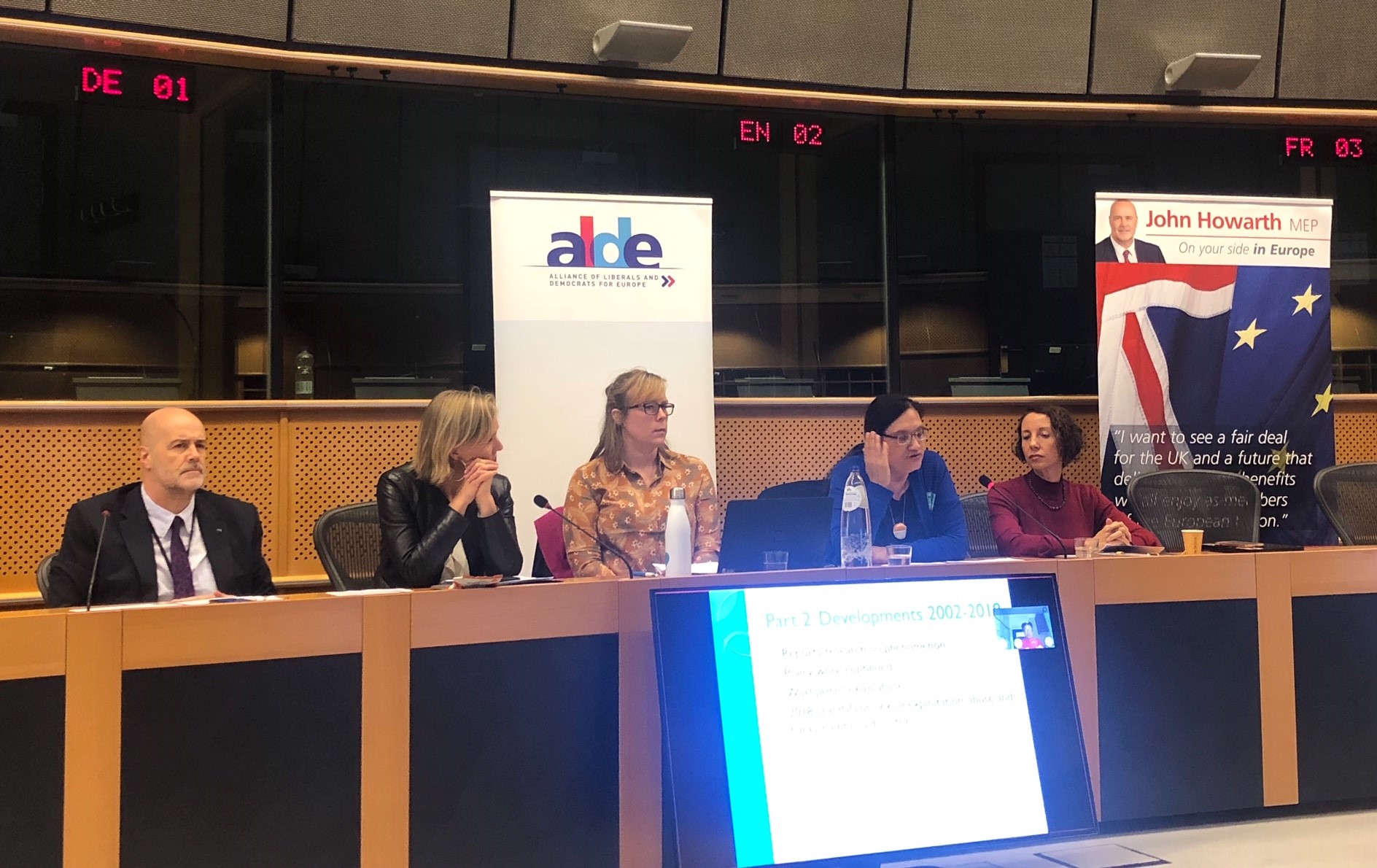John writes:
On the 19th of November I hosted a policy roundtable in the European Parliament on safeguarding in the aid sector. I want to be very clear. Largely, organisations across the aid sector do a marvellous job. Without the people who work in these organisations, dire situations would be hopeless. Those prepared to work in chaotic environments, often moving across continents and away from their family and friends in difficult circumstances are truly remarkable people. However, in February this year, revelations about some Oxfam workers’ behaviour in Haiti hit the headlines. More allegations followed, including allegations concerning Save the Children.
Why I got involved
I don’t have first-hand knowledge of the Aid sector. Like most people, I witnessed the dripping tap of #AidToo revelations for the first time in February 2018. I was appalled by the incidents of exploitative and in some cases criminal activity by individuals in positions of trust, the apparent failings of the charitable regulator, and the willingness of the big charities and not-for-profits to apparently ignore abusive behaviour and definitely to put their corporate reputation ahead of the welfare of vulnerable individuals.
A constituent who had been working in Oxfam’s safeguarding department subsequently approached me. She had the courage to go public with her experiences of the failures of Oxfam’s board and trustees to take incidences of sexual harassment and abuse seriously. This includes both dealing with incidences of abuse towards beneficiaries of aid and those that occurred to Oxfam employees.
The issue was bring progressed by others in the UK in public life and the media. As an MEP covering Oxfordshire and the headquarters of Oxfam, I felt it was appropriate to take up the issue. The EU is the world’s leading donor of development assistance. Working with a colleague in the Parliament I was able to give the issue a profile in Brussels. Our objectives are to protect the position of development aid programmes and development aid budgets but also to ensure that the EU takes safeguarding seriously. I felt that I had an opportunity to help to facilitate a platform to help reformers influence the conversation around safeguarding. My colleague Marietje Schaake MEP raised the issue in the Parliament through a procedure called an ‘oral question for debate’ that I co-signed. I then organised a heading for experts and survivors of abuse that Marietje co-sponsored.
The hearing at the European Parliament
We were able to gather together some of the leaders in the safeguarding field to address an audience comprised of members and employees of the EU institutions, and members of external bodies, including NGOs. All panellists have been working on safeguarding issues, both before and after the start of the #AidToo revelations in February.
Asmita Naik started the panel, speaking about the historical context of the Oxfam scandal. She pointed out that this was not a new issue in the aid sector and referenced her report, written in conjunction with the UN back in 2002, on food as a tool of sexual exploitation in Western Africa. We were then joined by Lesley Agams, the former country director of Oxfam in Nigeria, who spoke about her personal experiences of sexual violence whilst attending an aid conference. Hannah Clare, the Global Adviser on Protection against Sexual Exploitation and Abuse in the Norwegian Refugee Council, then discussed how best to handle safeguarding issues and reform from a practitioner’s point of view, and then Tricia Young, CEO of Terre d’Hommes, concluded with her experience working on the Bond Child Rights working group.
There was a common thread to all the panel’s contributions. It’s clear that there’s the frameworks in place for effective safeguarding practices- the issue comes in the implementation. Panellists spoke of the unequal power structures within the aid sector, with some charitable boards being dominated by an ‘old boys’ network’, and a reluctance to take complaints seriously and to deal with perpetrators of sexual violence.
The developments stemming from the recent DfID Safeguarding Conference were also critiqued and all panellists were united in their view that the structures are already in place, and what NGOs really need is a cultural shift.
The next steps
The proceedings of the hearing will be submitted to the European Commission and my colleague and co-sponsor will continue the work after my term of office as an MEP is completed. I know there are concerns in the Commission that good safeguarding practices are essential to aid programmes and are keen to listen to stakeholders based across the EU and their views on what effective safeguarding practices look like and their views on what an effective regulator should be.
If you are an interested party and would like to contribute to this dossier, please contact my office and a member of my team will be in touch.



